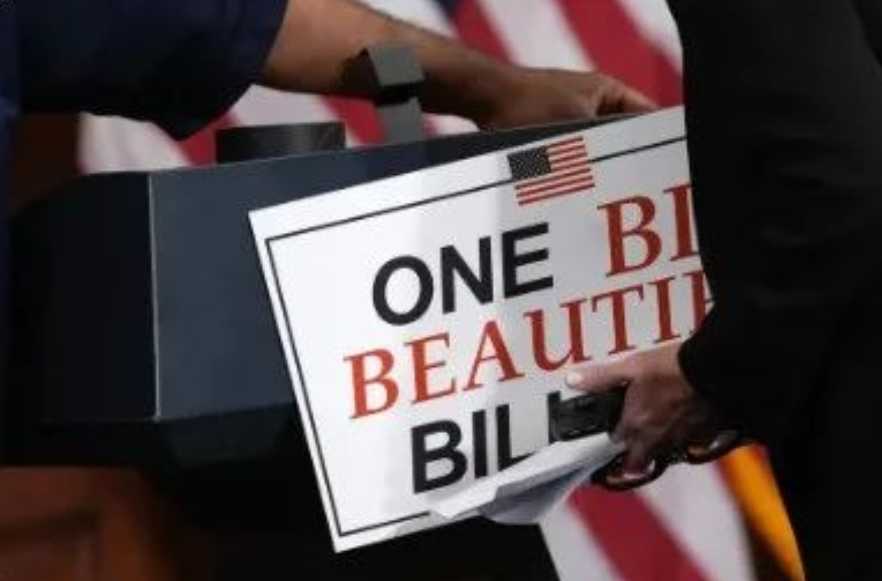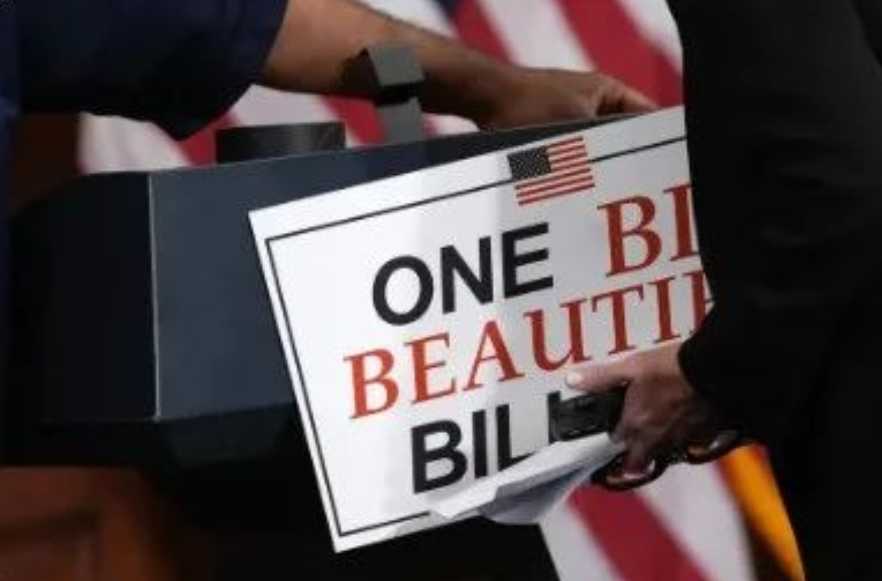On July 4, 2025, US President Trump signed the controversial "Big and Beautiful" tax and spending bill into law, which has dealt a heavy blow to the US new - energy industry2.

Source: Images from the Internet, if there is any infringement, please contact the removal of
The bill contains many provisions that are extremely unfavorable to the new - energy industry1. Since September 30 this year, the $7,500 federal tax credit for consumers purchasing or leasing new electric vehicles and the $4,000 subsidy for purchasing used electric vehicles will be completely cancelled3. For automakers that have sold more than 200,000 eligible electric vehicles, the subsidy will be terminated ahead of schedule by the end of 2025. In addition, a clause has been added requiring electric vehicle owners to pay an additional $250 in highway usage fees each year. In terms of wind and solar energy, projects put into operation after 2027 will not be eligible for tax credits, and if a certain proportion of the materials and equipment of wind and solar energy projects come from "prohibited countries", taxes will be levied.
This bill has a wide - ranging impact on the new - energy business sector. Tesla is the first to bear the brunt. Its carbon - credit sales revenue was originally an important source of profit. Now that Trump has set the fuel - pollution penalty standard for the automotive industry to zero, traditional fuel - powered vehicle manufacturers no longer need to purchase "carbon credits" from Tesla to offset fines. In the first quarter of 2025, Tesla's carbon - credit sales revenue reached $595 million, exceeding its net income. Losing this income, Tesla faces huge challenges in profitability. Other automakers, such as General Motors and Ford, are also affected by the cancellation of subsidies. With the market - expected decline in sales and the sharp increase in investment risks, the rise in consumers' car - buying costs will suppress the purchase demand, and automakers have to re - evaluate their production capacity planning and market layout. In the solar energy industry, many related enterprises are also in a difficult situation. Will Ethridge, the head of a solar equipment company in North Carolina, USA, had to send warning messages of possible layoffs to more than 50 of his 190 employees due to the bill's significant reduction in tax credits for the clean - energy industry.
From the perspective of employment, it is estimated that the United States is expected to lose 840,000 jobs closely related to the renewable energy, clean - technology manufacturing, and electric vehicle industry chains by 2030. From the perspective of market investment, the capital that originally flooded into the new - energy industry has begun to re - examine the investment direction. Many new - energy projects are facing a funding shortage due to the loss of policy support, and planned investments have been put on hold. Trump's signing of the "Big and Beautiful" bill has cast a thick shadow over the commercial development prospects of the US new - energy industry, and the future trend of the industry is full of uncertainty.









